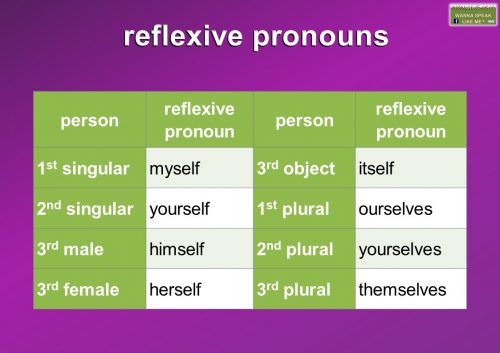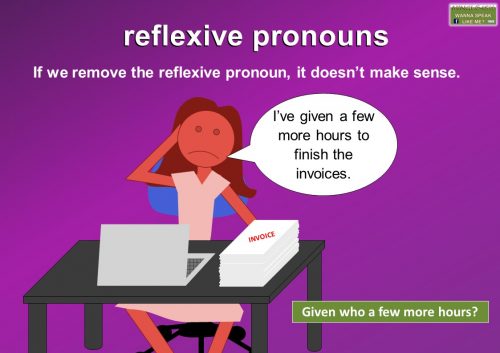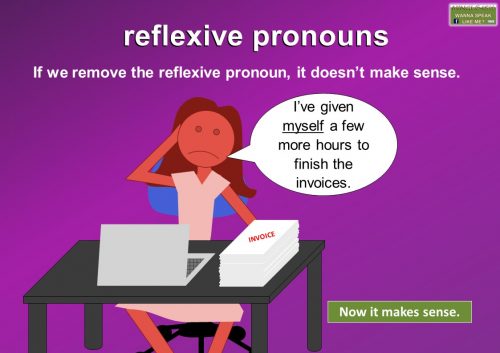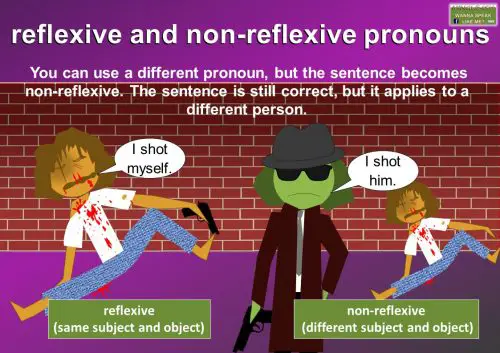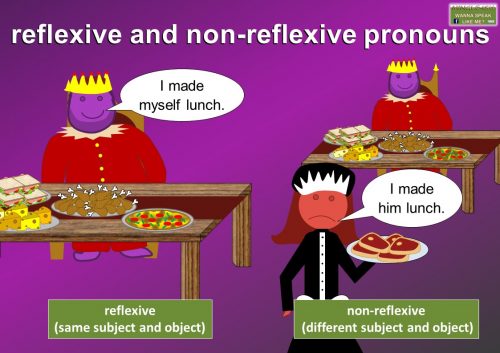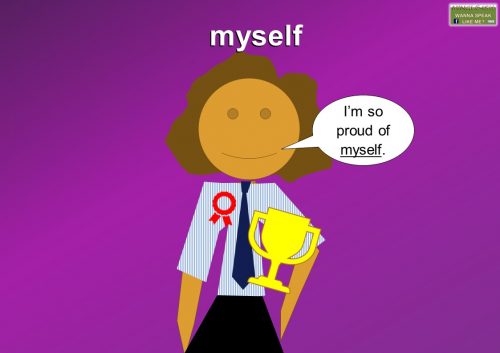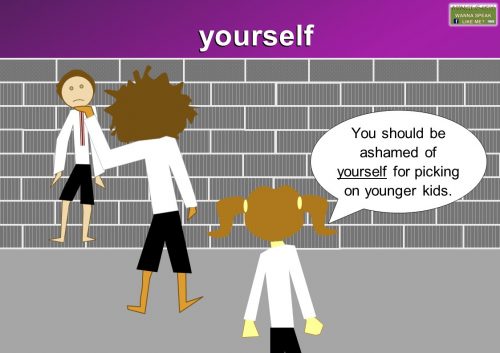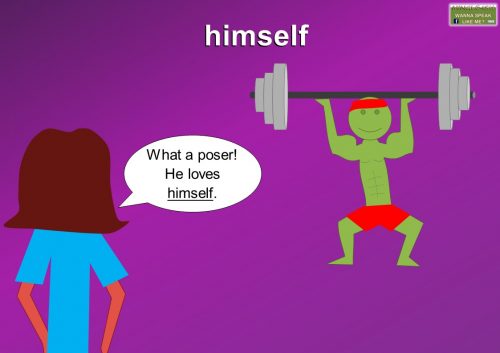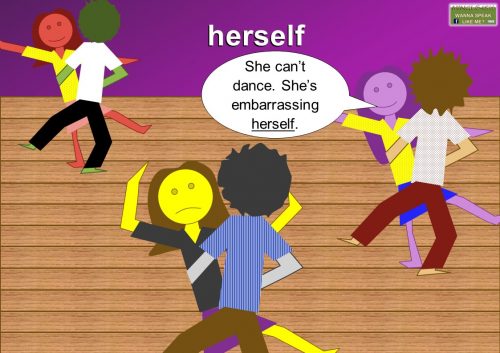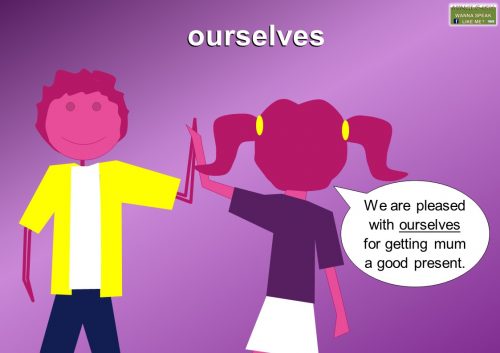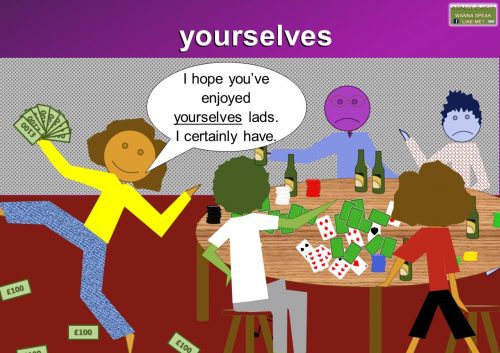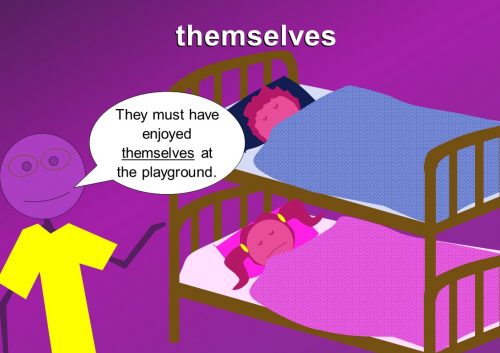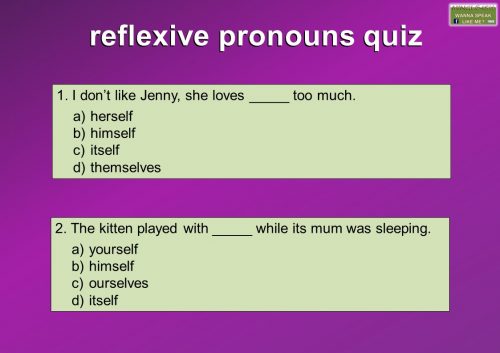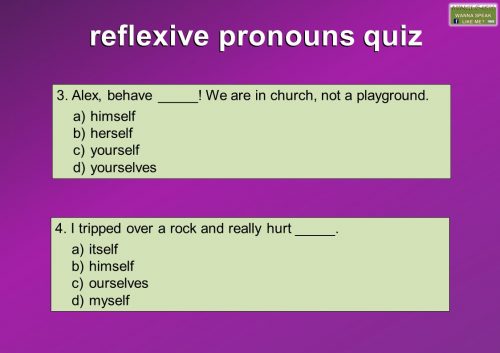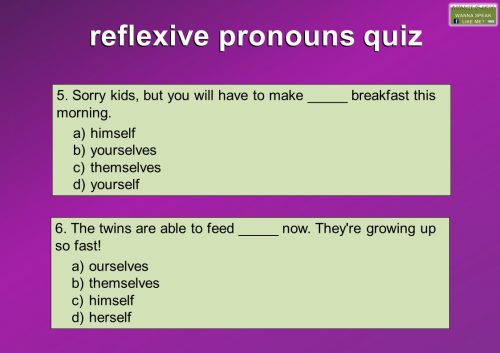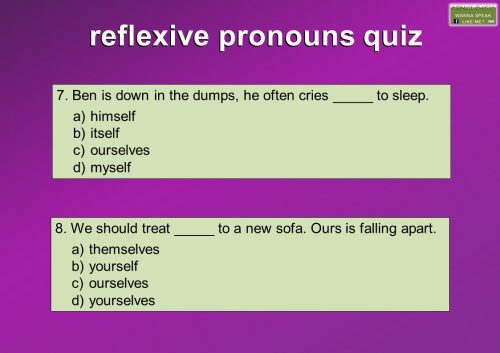Contents
We know what the subject of a sentence is, and we know what the object of a sentence is. What if the subject and the object are the same? This is where reflexive pronouns come in to play.
Reflexive pronouns refer back to the subject of a sentence. They are easy to spot as they end in either ‘self’ or ‘selves’. Let’s start off by learning them.
Reflexive pronouns refer back to the subject of a sentence. They are easy to spot as they end in either ‘self’ or ‘selves’. Let’s start off by learning them.
If a reflexive pronoun ends in ‘self’, it’s singular. If it ends in ‘selves’, it’s plural. Therefore, the subject and object must match.
- I hate myself.
- You hate yourself.
- He hates himself.
- She hates herself.
- It hates itself.
- We hate ourselves.
- You hate yourselves.
- They hate themselves.
An important point to remember is:
If the reflexive pronoun is removed from a sentence, it doesn’t make sense. I’ll show you what I mean:
It doesn’t make sense, does it? Let’s include the reflexive pronoun and it will become a perfectly functioning sentence.
reflexive and non-reflexive pronouns
Sentences can be reflexive or non-reflexive. I’ll give you an example:
We blame ourselves. (same subject and object = a reflexive sentence)
We blame them. (different subject and object = a non-reflexive sentence)
Let’s look at some examples with pictures.
examples of reflexive pronouns
Let’s take a look at reflexive pronouns in use with some pictures.
reflexive pronouns quiz
Are you ready to test yourself?
answers 1. a) 2. d) 3. c) 4. d) 5. b) 6. b) 7. a) 8. c)
For an extra challenge, try making the sentences non-reflexive.
